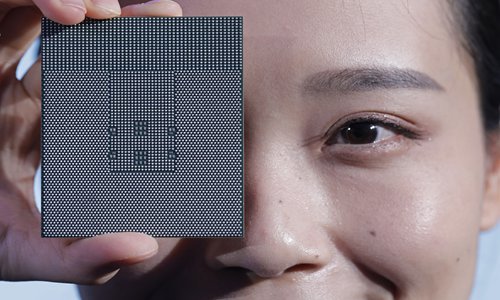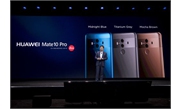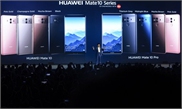
A Kunpeng 920 chip is displayed at an unveiling ceremony in Shenzhen, South China’s Guangdong Province on Monday. Chinese telecom giant Huawei unveiled a processor chip for data centers and cloud computing as it expands into an emerging global market. Photo: AP
Huawei's in-house semiconductor company HiSilicon has announced that it has begun to sell its 4G chip, the Balong 711, on the open market for the first time.
This could be one of Huawei's counterattack measures against the US government, as it would pose a large business threat to US chipmaker giant Qualcomm, whose products are used currently by the majority of China's mobile phone companies including Oppo, Vivo, OnePlus and Xiaomi, veteran communications expert Xiang Ligang said.
"Selling Balong baseband chips for the first time on the open market could signal a change in Huawei's business mindset. It also signals the possibility that Huawei might sell other chips, including those in the high-end Kirin series," Xiang told the Global Times on Thursday.
Consisting of three chips, the Balong 711 can be used in a number of open CPU solutions such as ride sharing, assets tracking and industrial routing, according to an article published on Huawei Kirin's official WeChat account.
In the past, most of HiSilicon's chips, including the Kirin and Balong varieties, were not sold on the open market but used internally for Huawei products instead.
Huawei executives had already hinted at such changes in public speeches. Yu Chengdong, CEO of Huawei's consumer business, said earlier that Huawei was already considering selling its Kirin processors on the open market.
Huawei is "open" to selling its 5G chips to rival smartphone makers including Apple, its founder and CEO Ren Zhengfei said in an early interview with the CNBC.
According to Xiang, after the US government launched sanctions against Huawei, worries arose among domestic mobile phone makers that they might be put under similar sanctions at some point in the future. With such concerns, they should find it safer to cooperate with domestic chipmakers like Huawei who can supply products steadily.
The US government has put Huawei on an Entity List, preventing the Chinese tech giant from purchasing US products and services.
"In terms of technology, Huawei chips can rival those made by Qualcomm. I believe that as Huawei sells more of its chips on open markets, it will pose great competition to the latter. This will also add pressure to the US government," Xiang said.
Global Times


